5 Quick and Easy Ways to Prevent Identify Theft Online
Security experts say that these steps are simple but vital.
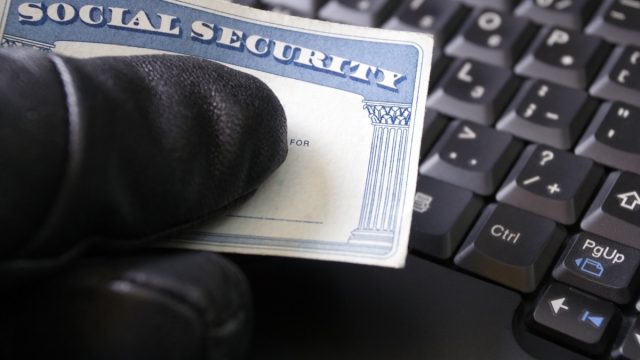
Identity theft is more common than you might think: When criminals can hide behind computer screens, they get a lot more brazen. According to a 2021 study conducted by cybersecurity company NordVPN, approximately 29 percent of Americans had their bank accounts compromised last year, and 28 percent were victims of identity theft. And although there are ways to prevent identity theft online, these numbers continue to climb.
"Year after year we see growth in cybersecurity incidents in the U.S. In fact there was a 27% increase in 2021 compared to 2020. With these numbers on the rise, more and more people will be impacted by those cybersecurity issues, even though 50% of our respondents think that they are well prepared," Daniel Markuson, cybersecurity expert at NordVPN, said in a press release outlining the findings.
But what is identity theft, really? For one thing, it's distinct from credit card fraud, although the two are often confused. Nathaniel Cole, chief information security officer and security advisor for Network Assured, tells Best Life that identity theft involves a bad actor obtaining "enough personal information to successfully apply for and attain items like credit cards, state identification, or even medical care."
As the security expert notes, "Identity theft can be more nuanced and include taking over accounts to pose as you for nefarious reasons, but oftentimes it is motivated by financial gains through the attainment of credit."
Cole says that one way to protect yourself in the digital age is to adopt a "hermit life" and eliminate your online presence entirely. That's probably not a realistic option for most Americans, however, so you'll need remain vigilant and proactive about protecting your personal information. It may seem overwhelming, but experts say that there are a few key methods of keeping yourself safe.
Read on for five quick and easy ways to protect your identity online.
READ THIS NEXT: If You Get a Call From This Number, Hang Up Immediately, Police Say in New Warning.
1
Use a password manager.
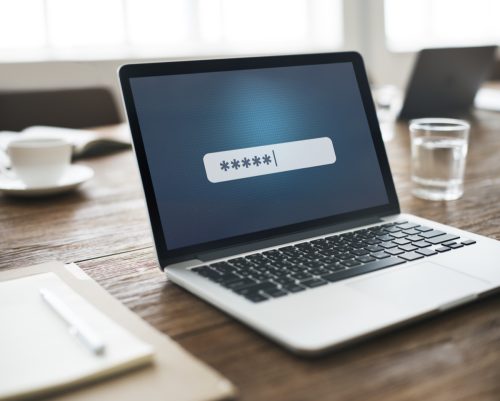
Have trouble remembering all of your passwords? Wouldn't it be convenient to have them stored in one place—as opposed to written on scraps of paper scattered throughout the house? That's where a password manager comes in.
"Password managers make it easy to use strong passwords for your accounts and keep them secure," Michael Xavier, cybersecurity expert and founder of InsiderTechie, says. "Instead of having to remember all of your passwords, the password manager will remember them for you."
This can also help differentiate your passwords, rather than always reusing the same one. "It makes it easier to have separate passwords for your accounts because you don't have to worry about remembering them, it's all saved in your password manager," Cathy Pedrayes, digital creator of content about cyber security and data, says. "Also they usually have a feature to notify you if a password has been compromised, and they'll help you to create strong passwords."
Different browsers come equipped with this feature, but Pedrayes confirms that you can also use a third-party manager if you prefer. Still not convinced? A study performed by Security.com found that people without password managers were three times more likely to have their identities stolen compared to those who use them properly.
2
Use two-factor authentication.
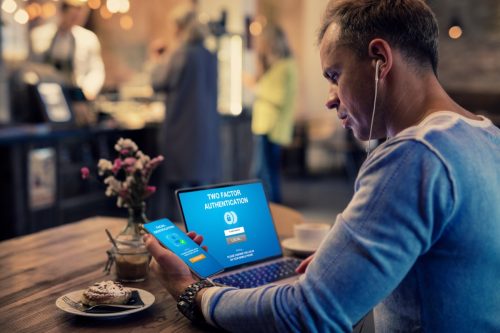
Along with using a password manager, you should always enable two-factor authentication, experts say. You'll be glad you did if anyone does get ahold of your passwords.
"If your username and password get compromised, having two-factor authentication offers an extra layer of protection," Pedrayes says. "If someone is trying to log in, they'll be prompted to enter a randomly generated code, which is usually texted to you or generated via an authenticator app. If they don't have your device, they won't be able to enter that code, and it'll be harder to get into your account."
Two-factor authentication also saves you the hassle of having to constantly keep tabs on your accounts, as you'll get these texts if you—or someone with bad intentions—is trying to log onto your profile.
READ THIS NEXT: If You're Asked to Put This on Your Car, It's a Scam, Police Say in New Warning.
3
Lock your credit.
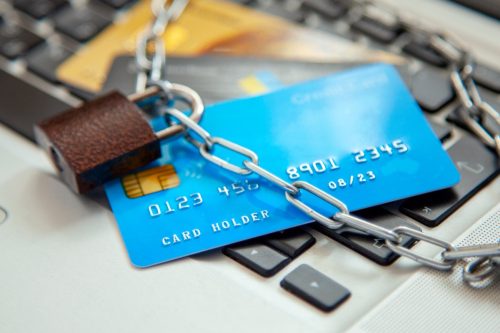
Pedrayes also recommends locking your credit to prevent fraudulent accounts from being opened in your name. According to Credit Karma, new creditors won't be able to access your credit reports when they're locked—which is to say, locking your credit provides more protection and control than a credit freeze.
"Unless you're buying a home, a car, or applying for credit cards, there's no need to leave your credit unlocked," Pedrayes says. "Call the credit bureaus and lock your credit."
If you do need a new credit card while your credit is locked, you can expect an additional verification process, but it shouldn't get in the way of your application. And while you're on the phone with the major credit bureaus, lock your kids' credit, too.
"Children can also be victims of identity theft, and experts estimate that the more we share online about our children, the more common this will become," she explains. You can lock your children's credit for free with both TransUnion and Equifax, but Experian can be expensive, per Credit Karma.
4
Think before you post and download.
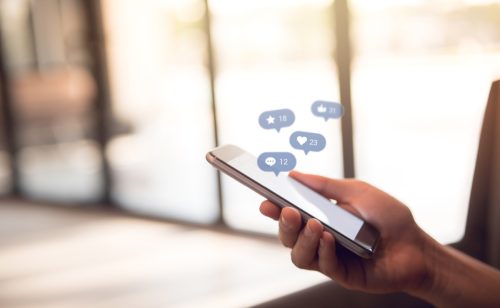
With the rise of social media, so much of our lives are now online. Even if you don't have Facebook or Instagram, you'd probably be surprised by the amount of information that pops up when Googling your name. Unfortunately, the more details that are available, the higher the chances of falling victim to identity fraud. Even things that seem innocent can put you in danger.
"A great first step is to not randomly share things online like your boarding pass or your restaurant receipt," Andreas Grant, network security engineer and founder of Networks Hardware, tells Best Life. "While it can seem harmless, there are ways to extract personal information from these pictures. This includes, but is not limited to, your personal details, the amount you paid, and the card used to purchase. These are not directly printed on those papers but are enough to do social engineering or phishing attempts."
Pedrayes says that you should be less trusting of the internet as a whole. "Becoming a victim of cybercrime is typically due to human error," she says. "We trusted what we were posting was private, we trusted that incoming call or text or email, we trusted that app we downloaded—trust less."
These ploys are particularly tricky when they instill a sense of urgency—a common phishing tactic—but Pedrayes urges you to take a moment and think.
"Whenever possible, before taking action on something, verify," she says. "If you want to download an app, take a look at the reviews, go to a search engine and look up if anyone's reported it as a scam. If you get an incoming message that seems urgent, call the person to verify. Overall, taking a few seconds to process and verify, is a huge step in protecting you against identity theft (amongst other cyber crimes)."
For more helpful advice delivered straight to your inbox, sign up for our daily newsletter.
5
Take advantage of useful (and free!) resources.
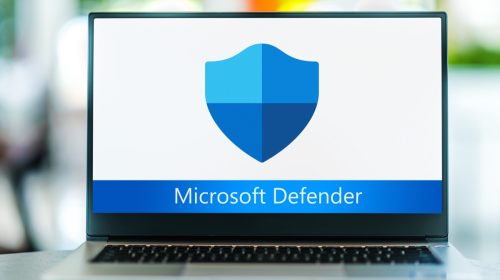
As Pedrayes points out, we're only human. We can't be expected to catch every threat that comes our way—and that's where security software comes in.
"A lot of our apps, software, browsers, and more, include security features. Enable them," Pedrayes recommends. "A few minutes dabbling in your settings or even looking up a tutorial online will get the job done."
She points to Microsoft 365, which includes Microsoft Defender for free with a subscription. The only step you need to take is to download a separate app.
With that in mind, always keep your software up to date. This includes your operating system, internet browsers, and other applications, Xavier says. "Updating will help protect you from the latest threats," he explains.





















